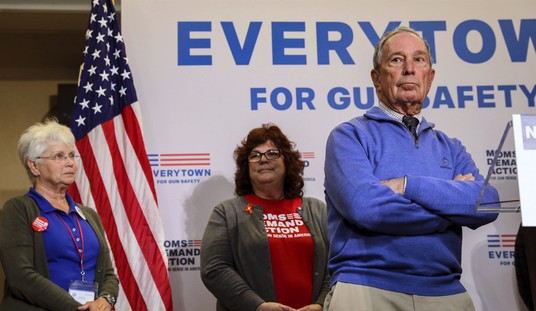There are a number of cases percolating around the country dealing with the issue of bans on gun sales to those under the age of 21, but unfortunately it’s been a mixed bag to date in terms of results. In Florida, a U.S. District judge upheld the state’s ban on selling firearms to adults between the ages of 18-20 earlier this year, though he said he was bound by precedent in doing so, and raised some objections to the existing case law in his opinion.
After Florida suffered one of the worst school shootings in our nation’s history, its Legislature faced a colossal challenge, forced to make difficult decisions while under tremendous time pressure. This Court does not envy the difficult balance the Legislature had to strike.
That said, this Court has grave concerns about the balance the Legislature struck. While the Act appears broad on its face, as Defendant argues, many 18-to-20-year-olds who wish to obtain a firearm will be able to do so through parents or other relatives. Whether this is an effective check on rash decision-making, this Court cannot say. But it is clear that this law will have little impact on many, if not most, 18-to-20-year-old Floridians. In short, then, it is not clear how much the Act does to prevent tragedies like the one at Marjory Stoneman Douglas High School.
Equally troubling to this Court is that, as Plaintiffs point out, “to those 18-to20-year-olds who do not have parents or legal guardians . . . or do not otherwise have anyone willing to gift or loan a firearm to them,” the Act functions as a total ban. Worse still, it is likely that these particular 18-to-20-yearolds are the ones who actually need firearms to defend themselves: they are likely independent, likely to live in dangerous neighborhoods, and likely to have families and children of their own. Why should the 20-year-old single mother living on her own be unable to obtain a firearm for self-defense when a 20-year-old living with their parents can easily obtain one?
Then we had the Fourth Circuit Court of Appeals rule that a ban on the sale of handguns to adults under 21 years of age violated the Constitution. Unfortunately, when the last plaintiff in the case celebrated her 21st birthday, the three-judge panel vacated the decision on the grounds that it was now moot.
“A divided panel of this court found those laws violated the text, structure, history, and tradition of the Second Amendment,” wrote U.S. Circuit Judge Julius Richardson, who also wrote the opinion in July overturning the federal age limit.
“After the opinion issued, but before the mandate, [Natalia] Marshall turned 21,” he added. “And that made her claims moot.”
Richardson, a Donald Trump appointee, said the procedural move is common practice for the court when such mootness occurs. He noted several attempts by Elliot Harding, the Charlottesville-based attorney who argued on behalf of Marshall, to try to keep the case alive, but the court ultimately vacated both the panel ruling and the district court opinion in the case.
But Harding said those efforts, including interventions by gun retailers seeking to sell handguns to those under 21, were still working through the legal process, including forthcoming appeals, with the hopes of still overturning the law.
“Regardless of how these immediate issues may be resolved, these laws will continue to be challenged one way or another until liberty is ultimately restored,” Harding said in an emailed statement.
Which brings us to Oregon, where the state court of appeals has revived a lawsuit filed by a young Oregon woman against a gun shop that refused to sell her a rifle when she was 18. There’s no Oregon law banning the sale of long guns to those younger than 21, just the shop’s policy. It’s that in-house rule that’s at issue here, with Brandy Dalbeck arguing that Bi-Mart violated the state’s age discrimination law when it denied her the ability to buy a gun.
Lane County Circuit Judge Charles D. Carlson dismissed Dalbeck’s case without a trial in 2019.
In his order for dismissal, Carlson said Oregon’s anti-discrimination law did not prohibit places like Bi-Mart from discriminating against people between the ages of 18 and 20 based on age — and even if the law did, Bi-Mart could adopt a policy against selling firearms to those under 21 as a matter of public safety.
Carlson wrote the anti-discrimination law contained “implied exceptions” to allow for age-discriminatory policies “for public health or if safety is at issue, be it tobacco, marijuana, alcohol, gaming, transportation, or firearms.”
Oregon’s appeals court disagreed.
In Wednesday’s opinion penned by Appeals Judge Erin C. Lagesen, the court said Oregon’s anti-discrimination law prohibits age discrimination against anyone 18 and older — except in instances explicitly allowed under separate laws.
Appeals Judge Jacqueline S. Kamins wrote a concurring opinion, arguing that although she agrees the law does not allow companies to restrict gun sales for people between 18 and 20 years old, it may not reflect the Oregon Legislature’s intent, as other laws have limited the firearm use of teenagers in other ways.
The Oregon case is a little different than the other two mentioned above because it does deal with a private business and not a state law, but the underlying issue is still the same: can adults be denied their constitutional rights because they’re young adults?
Brandy Dalbeck can get married, sign contracts, serve on a jury, and enlist in the military. Heck, she can even carry a gun in service of this nation, but she couldn’t buy a hunting rifle because she was 18? That seems wrong to me.
Dalbeck’s case isn’t going to be the vehicle that gets this issue before the Supreme Court, but hopefully we will see a case get there soon. One issue, though, is mootness. If cases get tossed once plaintiffs turn 21, it makes it awfully hard to file a case in district court and have it get to SCOTUS within three years. I don’t know what the answer is, but I do know that the laggardly pace of the legal system cannot be an excuse to keep an unconstitutional law in place.









